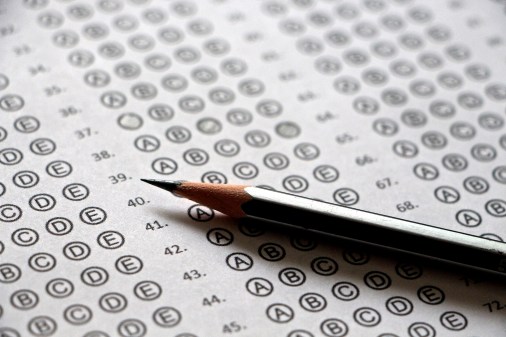MIT reinstates SAT and ACT requirements to help predict student success

The Massachusetts Institute of Technology will once again require SAT or ACT scores for admissions, after research showed that the scores are reliable in predicting student success, the university announced Monday.
The decision resulted from “a great deal of careful research” on how to evaluate applicants to see if they’re prepared for rigorous coursework, Stuart Schmill, MIT’s dean of admissions and student finance, wrote in a post on the admissions office’s website. The university analyzed admissions and outcomes data, like graduation rates and GPA, and found the scores “significantly” improved predictions.
“We cannot reliably predict students will do well at MIT unless we consider standardized test results alongside grades, coursework, and other factors,” Schmill wrote.
Math scores seem to be most helpful in predicting student success, he wrote, potentially because of MIT’s exhaustive mathematics requirements. The university requires two semesters of calculus and two semesters of calculus-based physics for all students, regardless of major.
“None of our predictions are 100% and you can’t predict 100% for any student,” Schmill told EdScoop. “The predictions aren’t that strong but they’re good enough for us to be able to make decisions on.”
Schmill told EdScoop the university does not use predictive analytics software in its application-review process, but rather each admissions decision is made by people. He said quantitative data like test scores and GPA can guide admissions officers, who can then dig in deeper to the information that gives the university a sense of the student’s goals and life experience.
MIT, which has a 4.1% admission rate, dropped the SAT or ACT requirements for the 2020-2021 and 2021-22 admissions cycles, citing the coronavirus pandemic. Many other colleges also made submitting scores optional because of limited testing availability.
Schmill said that high-school coursework can help admissions officers determine how prepared students are for college, but not every student has access to the advanced classes that highly selective schools like MIT look for when considering applicants. When MIT moved to the test-optional policy, some students withheld standardized test scores that could’ve strengthened their applications out of fear those scores weren’t high enough, he said.
“We believe that the requirement offers clarity and transparency in helping students understand our process,” Schmill said.





